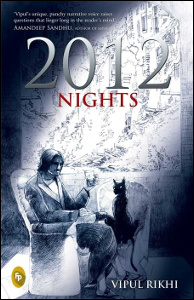My review of Mohammad A. Quayum’s The Essential Rokeya: Selected Works of Rokeya Sakhawat Hossain has just been published in Cha: An Asian Literary Journal.
Here is an extract:
Born in 1880 in what is now Bangladesh, and having died in Calcutta in what was still undivided British India in 1932, Rokeya Sakhawat Hossain (whose name can be spelt in a variety of ways) has come to be known as one of Bengal’s first feminists. She is particularly known as one of its first Muslim feminists, especially for writing Sultana’s Dream, a “utopian” novella in which women rule and men are kept in purdah. With The Essential Rokeya: Selected Works of Rokeya Sakhawat Hossain, editor and translator Mohammad A. Quayyum adds to the body of scholarship on this interesting figure, with some previously-untranslated essays, articles, letters and extracts in translation from Bangla as well as some that were originally written in English. Quayyum describes the inclusions as some of Hossain’s best works.
